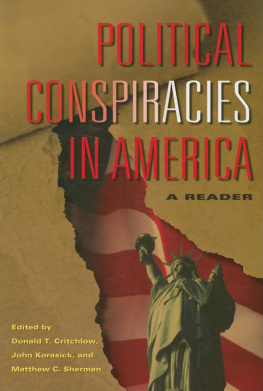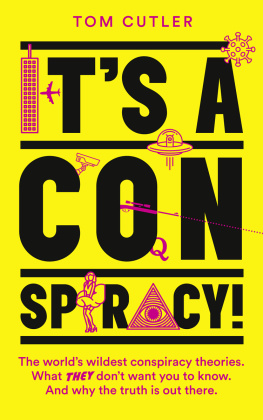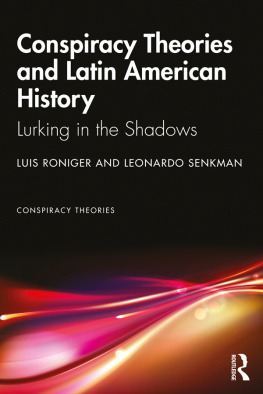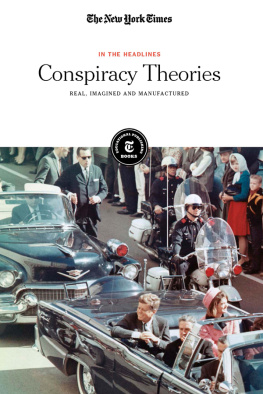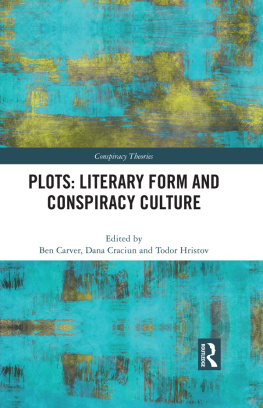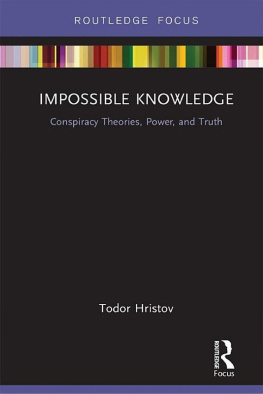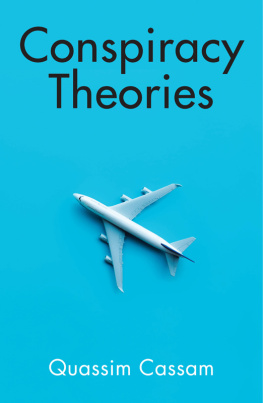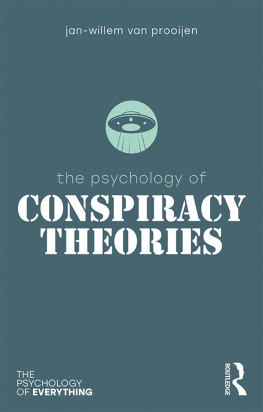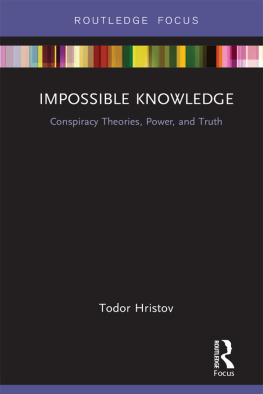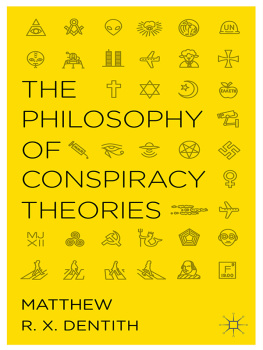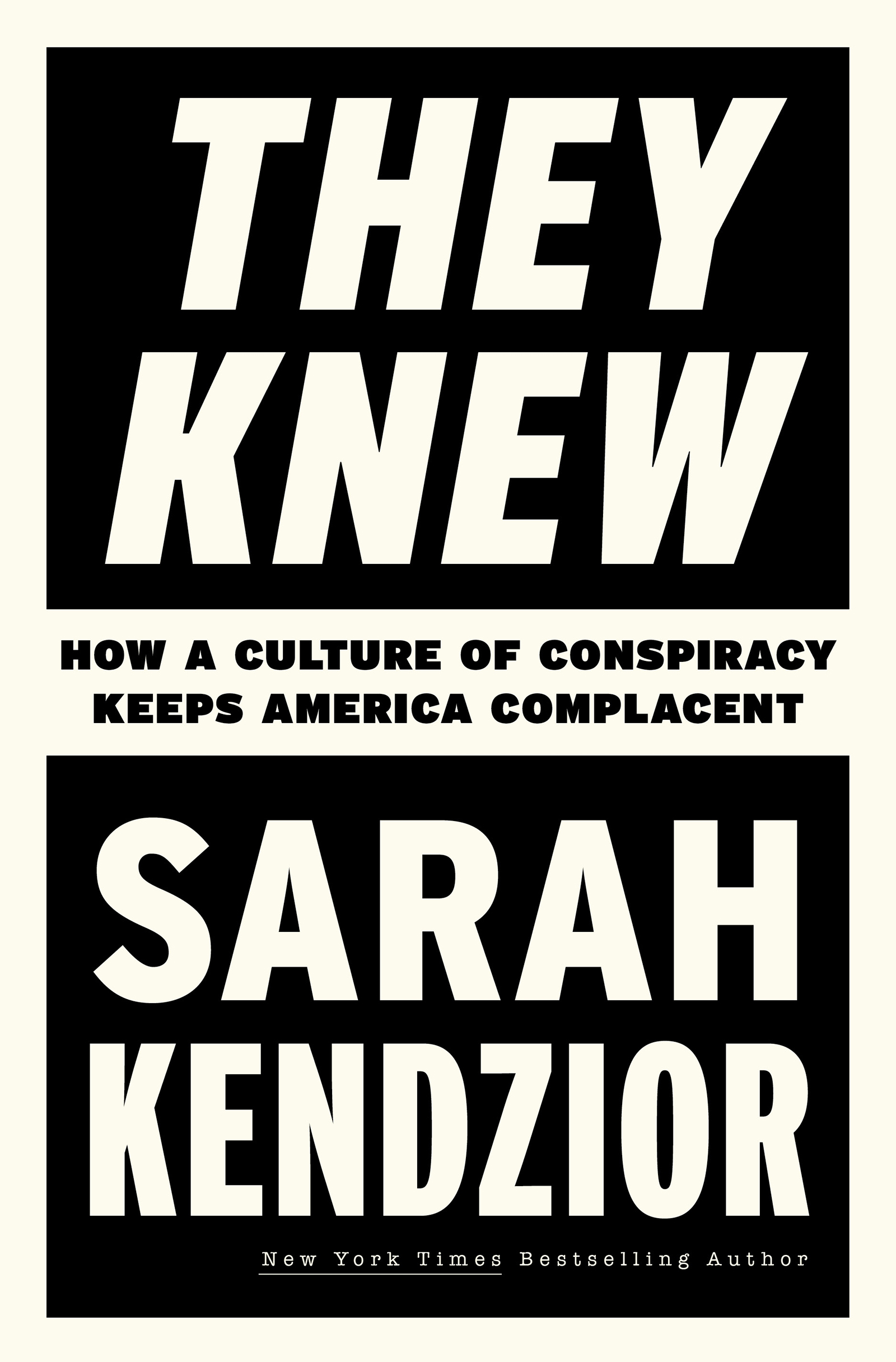Contents
Guide
Pagebreaks of the print version

The author and publisher have provided this e-book to you for your personal use only. You may not make this e-book publicly available in any way. Copyright infringement is against the law. If you believe the copy of this e-book you are reading infringes on the authors copyright, please notify the publisher at: us.macmillanusa.com/piracy.
For my children, and for our country
I wrote this book in 2021: between the coup plot and the war, between delta and omicron, navigating the mix of chaos and inertia that defines our era. 2021 is a year that will be remembered in historyif the future is lucky enough to have historyas pivotal, much like 1918 and other years that make or break the world. They Knew discusses the difference between a conspiracy and a conspiracy theory, two terms that those in power want us to believe are inseparable so that we remain ignorant of the past and passive about the future. 2021 brought a reexamination of the United States as a country built on conspiracy, and They Knew is a reboot of the historical record. It is not comprehensive and it is not conclusive, and that is a good thing. Whatever happens between the time I wrote this and the time you read it, I hope you are still left with the freedom to make up your own mind.
February 22, 2022
They regarded it, not as a foreshadowing of evil in the future, but as the fulfilment of an evil already presaged.
Herman Melville, Moby-Dick
Nobody saw it coming.
American folk saying
In northern Arkansas there is a town called Eureka Springs, where no streets meet at a right angle. The town is built into the bedrock, captive to ancient geology, its buildings carved into curving cliffs and its trees erupting through layers of sloping sidewalks. There are no traffic lights in Eureka Springs because there is no clear way to turn, no bearings to get, no center to hold. You can enter the ground floor of a building and walk a straight line out the back door only to discover you have just left that sides fifth floor. The topography dictates your journey: renames it, replaces it. Its reassuring in this day and age, such reliable disorientation. No one comes to Eureka Springs for certainty anyway. They come for the magic and the ghosts.
Before the pandemic hit, every December my family would drive from St. Louis, Missouri, to Dallas, Texas, to celebrate Christmas with my sister and her family. Every year we would stop in Arkansas and spend a night in Eureka Springs. The official reason was to break up the ten-hour drive, but the real reason was to stay at the Crescent Hotel, and the reason we wanted to stay at the Crescent Hotel was that its haunted. This is not our opinion, but the hotels calling card. Since 1886, the Crescent has loomed over Eureka Springs, attracting travelers seeking miracle cures in the towns waters, which are said to possess magical healing powers. In the nineteenth and early twentieth centuries, the famous and infamous passed through as the Ozarks became a gangsters paradise and a politicians retreat. The hotel changed hands and identities: a luxury resort, a womens conservatory, a junior college. Then the Great Depression hit and it became a place where people literally died of false hope.
In 1937, a con artist named Norman Baker arrived in Eureka Springs with a new mark in mind. Born in the Mississippi River trade town of Muscatine, Iowa, in 1882, Baker grew up rich and spent his formative years getting wealthier through fraud. In the 1920s, he traveled through a shell-shocked America still reeling from the Spanish Flu, scouring the landscape like a vulture preying on pain. An aspiring politician, former carnival barker, and skilled demagogue, Baker gained a massive audience spouting conspiracy theories through the newly popular medium of radio. He operated a station in Muscatine that he called KTNT, which stood for Know the Naked Truth. Muscatine was at this time a fledgling Midwestern media mecca. Mark Twain had worked at its newspaper, before being accosted by a local with a knife who insisted he call him the son of the devil or be killed, at which point Twain decided to leave town.
Throughout the late 1920s, Baker warned his audience that evil cabals ruled the United States. He assured his listeners that he could expose the evildoers, so long as they kept on listening. His 10,000-watt broadcasts extended far beyond Muscatine, reaching over one million homes. Off the air, Baker consulted with a team of vicious lawyers he had hired to threaten the public officials and journalists investigating his numerous criminal offenses, which ranged from obscenity to libel to theft.
But Bakers cruelest crime was making ordinary people believe he could save them. In 1929, as the stock market crashed and America lurched deeper into despair, Baker proclaimed himself a medical genius. In December, he started a print magazine, The Naked Truth, and put a photo of himself on the cover alongside the proclamation CANCER IS CURED. In 1930, he set up a hospital in Muscatine, called it the Baker Institute, and staffed it with people who had minimal medical expertise. He peddled a cancer treatment that consisted of little more than seeds, corn silk, carbolic acid, and water, though he did not tell that to his audience. He branded this tonic Secret Remedy #5. Bakers secrets earned him $444,000 in 1930 alone, the 2021 equivalent of $7.2 million.
Baker was an opponent of vaccines. He told his followers that doctors recommending vaccines were part of a nefarious government plot. He claimed that doctors knew how to cure cancer, but refused to do it because it afforded them no financial gain, unlike his own selfless actions. Baker was vicious in his denunciations, but his audience liked it. In a time of economic misery and political instability, it felt good to have an enemy, and Bakers confidence was its own lure. Throughout the early 1930s, tens of thousands of desperate Americans gathered together at rallies to hear him speak. Baker assured them that one day cancer would disappear, like a miracle. They drank his treatment down like Kool-Aid-flavored hydroxychloroquine, and thereby sealed their own demise.
Within a year, the American Medical Association had caught on to Baker and sought to shut down his operation, seeing him as a merchant of death. The viciousness of Mr. Bakers broadcasting lies not in what he says about the American Medical Association but in the fact that he induces sufferers from cancer who might have some chance for their lives, if seen early and properly treated, to resort to his nostrum, they wrote in 1931. Baker responded by claiming that the American Medical Association had sent armed assassins to kill him. He then unsuccessfully sued the AMA for defamation.
These were classic Baker tacticsaccuse your opponents of an outrageous crime and sue them early and aggressively. But this time, he failed. He lost his radio license and his institute and gained an arrest warrant. He fled to Mexico, where he purchased a border radio station and broadcast to his audience that he would continue to live above the law. After a few years of lying relatively low, he returned to the United States in 1937. He served one day of prison time in Iowa, for practicing medicine without a license, and set off for Eureka Springs.
You can make a lot of money peddling lies on the road. But you can make even more when you settle in one place, forcing your victims to pay to come to you. By the time Baker arrived in northern Arkansas in July, the local economy had collapsed. The Crescent Hotel was a vacant Victorian behemoth from which one could gaze down at the towns past glory and current decay. Eureka Springs officials welcomed the flamboyant radio star, hoping his prowess for publicity would reverse their misfortune. And so, the scam, and the deaths, began anew.


